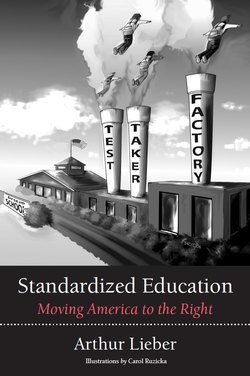Читать книгу Standardized Education: Moving America to the Right - Arthur OSB Lieber - Страница 5
На сайте Литреса книга снята с продажи.
Chapter 1 The Importance of Empathy in Teaching and Learning
ОглавлениеThere is one other item that is important to put on the table before proceeding any further. An underlying theme of much of what I say is the importance of empathy. A clear definition that Webster’s Dictionary gives of empathy is “the action of understanding, being aware of, being sensitive to, and vicariously experiencing the feelings, thoughts, and experience of another person.” In plainer English, it means being able to put yourself in someone else’s shoes.
Empathy is significant in terms of how people regard one another. It also relates to one’s political views. Within a school, it is important for students and teachers alike to be able to understand the perspective from which others come. If a student is having a difficult time at home, a teacher with empathy will cut that student some slack. A climate where there is such empathy can make the difference in terms of the student overcoming the hardships of home life.
In politics, empathy can be extended to a group of people who have experienced hardship. The civil rights movement in the United States had the involvement and support of many white people because they were able to empathize with the plight of African-Americans. A legislative body that is supportive of increasing the minimum wage is empathetic because the members understand the hardships of those who are earning less than $14,500 a year. We can safely say that when anyone in our political process has genuine care and concern for those less fortunate, that individual will have a progressive perspective on politics. I am not going to hesitate to acknowledge that the ideas that I propose in this book to improve education have a basis in empathy. This means that they have a progressive political slant. My bottom line is this: Both education and politics will best be improved if policies are based on empathy.
Some may say that I am applying a political bias to education. I am. But such bias exists in all schools, and usually it is a quite conservative one. The bias is conservative at least to the extent that it is designed to conserve the status quo. Our society is currently leaning to the right and will continue to so long as people are anxious about protecting their self-interest at the expense of generosity towards others in greater need. That’s one definition of conservatism.
It is best that we understand that, as individuals, we always have biases. It happens whenever we choose to emphasize one thing over another. Bias is reflected in choice of curriculum and what is valued in a particular school. It’s not a question of having or not having a bias. It’s a realization that all institutions reflect a bias, and we should (a) be aware of that and (b) be thoughtful about the biases of the organizations to which we belong.
Another reason why positive change in schools and in politics are intertwined is the principle of “practice the process.” What this means is that if you set standards for others, you have to act that way yourself. It’s not enough to say that people should be honest and then for one to act in a dishonest manner. It’s not enough for schools to be sensitive to those most in need in the school community but not to others in the broader community in which they are located. If you say that fairness is a value that is important to you, then you have to practice it in both your school and your politics. There is a disconnect when someone says “let’s have a fundraiser to help a deserving student deal with a health problem” and then fails to support a national health-care policy that provides the best we can give to everyone.
The psychologist Abraham Maslow talks about a hierarchy of needs. At the top is a phenomenon called self-actualization. It means being able to integrate one’s actions with one’s beliefs in a way that is sensitive to others. Self-actualization is not situational. You can’t say that we are committed to the well-being of the students in our schools but are not committed to the wellbeing of all citizens in our country—or, in reality, all citizens of the world. We practice politics in our schools. We need to acknowledge it, and we need to bring consistency between how we want students to act in a school and in society at large. For progressives, the key is empathy. For conservatives, it is generally winning, even at the expense of others. There has been much written about promoting win-win solutions. Schools need to practice this strategy and teach it to students.
